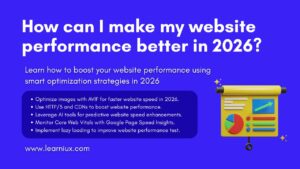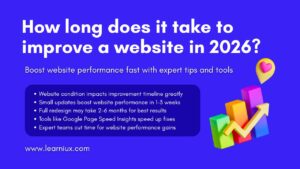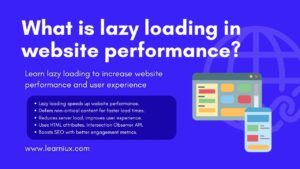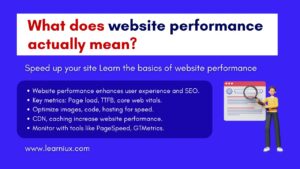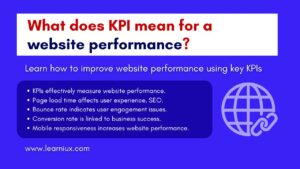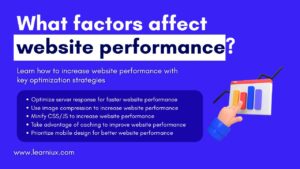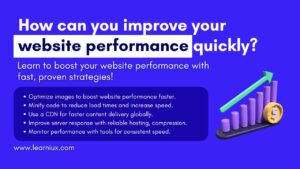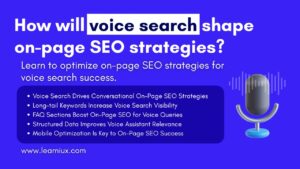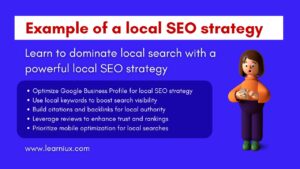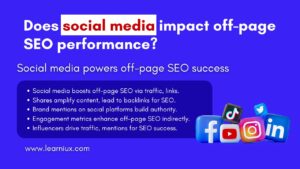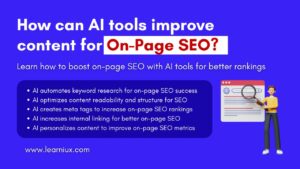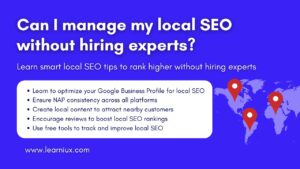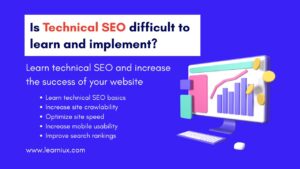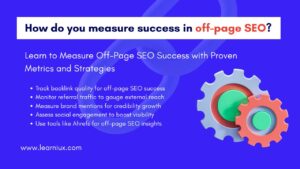Introduction
Artificial Intelligence (AI) is revolutionizing digital marketing, changing how businesses approach search engine optimization (SEO) and search engine marketing (SEM). As search engines evolve with AI-powered algorithms, understanding these changes is essential to staying competitive. AI enhances content creation, keyword research, and ad optimization, but it also introduces challenges such as lower organic traffic due to AI-generated summaries. This article explores how AI is changing SEO strategies for SEM, providing insights and best practices to help marketers adapt effectively.
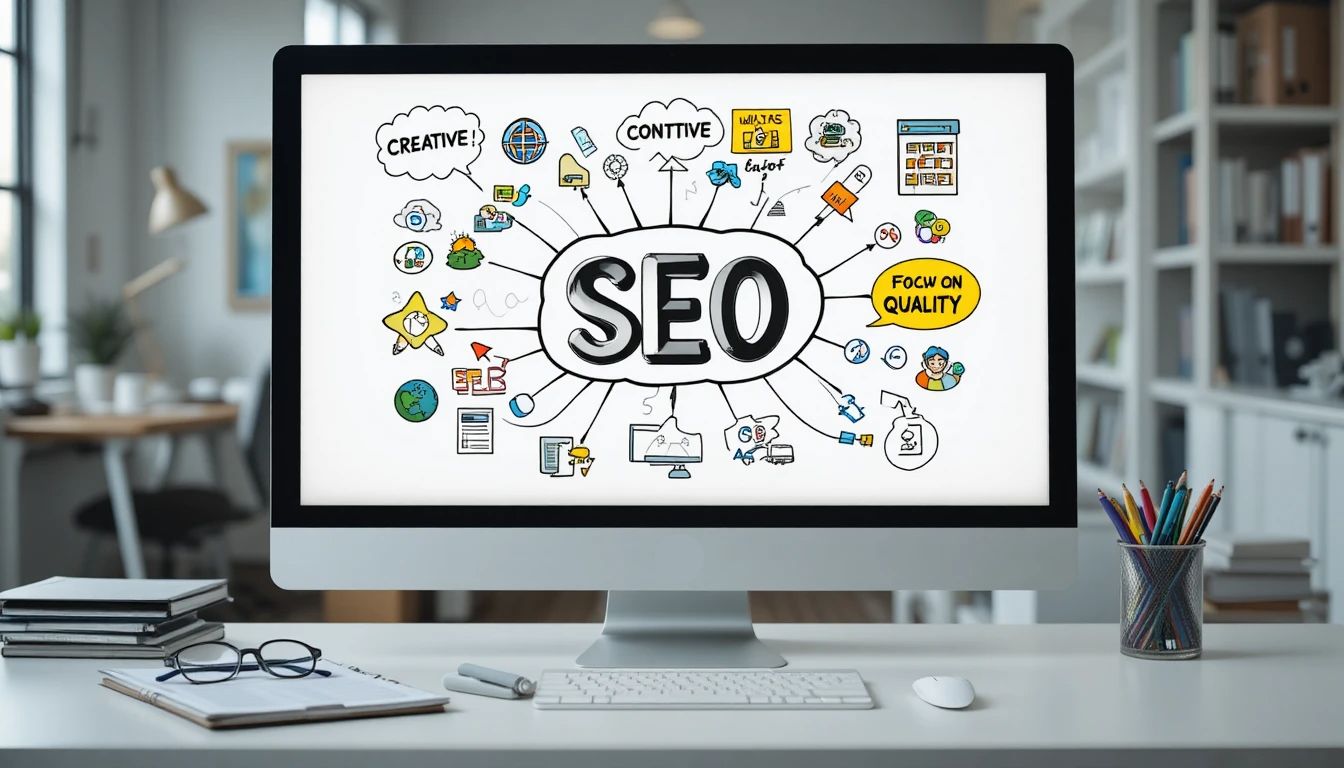
Understanding AI in Search Engines
Search engines like Google and Bing are increasingly relying on AI to deliver relevant, user-centric results. AI technologies like natural language processing (NLP) and machine learning power features like Google’s AI Overviews and Conversational Search. These systems analyze user intent, context, and behavior to provide accurate answers, often directly on the search results page.
AI Overviews, for example, summarize information from multiple sources, reducing the need for users to click through to websites. This shift is impacting both organic and paid search results, forcing marketers to rethink SEO strategies. SEM campaigns, which include paid advertising, must adapt to these AI-driven changes to increase visibility and return on investment (ROI). Understanding how AI interprets queries and prioritizes content is the foundation for effective SEO strategies in this new landscape.
Key Ways AI Is Impacting SEO Strategies
AI is shaping SEO by automating processes, enhancing content quality, and enabling data-driven decisions. Below, we explore the primary ways AI is impacting SEO strategies for SEM.
Automation in Keyword Research for SEO Strategies
The cornerstone of SEO strategies, keyword research, has been transformed by AI. Tools like Ahrefs, SEMrush, and SurferSEO analyze vast datasets to identify high-value keywords, predict trends, and uncover competitor strategies. These tools use machine learning to suggest long-tail keywords and questions that users might ask, aligning with conversational search patterns.
For example, AI can identify seasonal trends or emerging topics, allowing marketers to proactively optimize content. By automating competitor analysis, AI uncovers gaps in keyword strategies, enabling businesses to target underserved niches. This automation saves time and improves the accuracy of SEO strategies, ensuring that content aligns with user intent and search engine algorithms.
Content Creation and Optimization in SEO Strategies
AI-enabled tools like Jasper, Copy.AI, and Grammarly simplify content creation by creating drafts, optimizing readability, and ensuring alignment with SEO best practices. These tools analyze top-ranking content to recommend improvements such as ideal word count, keyword density, and meaningful variations. For SEM, AI ensures that ad copy is concise, relevant, and tailored to the target audience.
Furthermore, AI enables massive personalization. By analyzing user data, AI tools create content that matches specific demographics, improving engagement and click-through rates. For example, AI can create location-specific landing pages or adapt content tone based on audience preferences. This level of customization strengthens SEO strategies by increasing user satisfaction and time spent, key factors in search rankings.
Predictive Analytics for Future SEO Strategies
AI-powered, predictive analytics helps marketers predict search trends and user behavior. Tools like Google Analytics 4 and HubSpot use machine learning to predict which keywords or topics will attract traffic. By analyzing historical data and real-time signals, AI predicts changes in user intent, which enables proactive adjustments to SEO strategies.
For SEM, predictive analytics informs budget allocation and campaign timing. AI models can identify when to increase ad spend for maximum impact or suggest new audience segments based on behavioral patterns. This predictive approach ensures that SEO strategies remain agile, adapting to organic and paid search goals.
AI Poses Challenges to Traditional SEO Strategies
While AI offers significant benefits, it also presents challenges that marketers need to adapt to their SEO strategies.
Reducing Visibility in SEO Strategies
AI overviews and similar features often provide answers directly on the search results page, which can reduce organic traffic to a website. For example, a user searching for “best running shoes” may see a detailed AI-generated summary, which reduces the likelihood of visiting a brand’s site. This trend, known as “zero-click search,” poses a challenge to traditional SEO strategies that focus on driving clicks.
To combat this, marketers can optimize for featured snippets and structured data, which increase the likelihood of appearing in AI summaries. Creating high-quality, authoritative content that answers specific user questions also helps maintain visibility. For SEM, combining paid advertising with organic efforts ensures that brands remain prominent even if organic clicks decline.
Ensuring accuracy and relevance in SEO strategies
AI-generated results are not accurate. Inaccurate or irrelevant summaries can mislead users, which can impact brand trust. For example, if AI misinterprets a query, it may display outdated or incorrect information. This challenge requires SEO strategies to prioritize clear, well-structured content that AI can easily parse.
Marketers should focus on the E-E-A-T (Experience, Expertise, Authority, Trustworthiness) principles to ensure content is consistent with AI expectations. Regularly updating content and using schema markup also improves relevance, helping search engines interpret and rank pages correctly. For SEM, accurate ad targeting and relevant landing pages are crucial to complement SEO strategies.
AI-Enhanced SEM Strategies Combined with SEO Strategies
AI is transforming SEM by optimizing paid search campaigns, making them more efficient and effective. These advancements complement SEO strategies, creating a coherent digital marketing approach.
Smart Bidding and Targeting in SEM for Better SEO Strategies
AI-powered tools like Google’s Performance Max and Smart Bidding automate bid adjustments based on real-time data. These tools analyze user behavior, device type, and conversion probability to optimize ad spend. For example, Smart Bidding can increase the likelihood of users converting, thereby maximizing ROI.
This precision enhances SEO strategies by ensuring that paid campaigns target the same audience segments as organic efforts. By aligning keywords and messaging across SEO and SEM, marketers create a unified brand presence, improving overall search performance. AI also enables dynamic ad targeting, such as retargeting users who visited a site but didn’t convert, to strengthen SEO-driven traffic.
Personalization in ads aligns with SEO strategies
AI enables hyper-personalized ads by analyzing user data such as search history, location, and preferences. Tools like Google Ads use AI to deliver customized ad experiences, increasing relevance and engagement. For example, AI can serve users different ad creatives based on their interests, such as fitness gear for active users or luxury products for high-income audiences.
This personalization aligns with SEO strategies by ensuring that ads direct users to optimized landing pages. By creating a seamless user journey from ad click to website interaction, marketers increase conversions and strengthen organic rankings. AI’s ability to scale personalization ensures that SEM campaigns support long-term SEO goals.
Best Practices for Aligning SEO Strategies with AI in SEM
To thrive in an AI-driven landscape, marketers must integrate AI into their workflows with a user-centric focus. Below are key best practices for aligning SEO strategies for SEM success:
- Leverage AI for data insights: Use AI tools to analyze search trends, user behavior, and competitor strategies. Platforms like Moz and SEMrush provide actionable insights to improve SEO strategies.
- Prioritize high-quality content: Focus on creating authoritative, user-centric content that aligns with the E-E-A-T principles. AI can help with drafting but should be guided by human expertise.
- Monitor AI algorithm updates: Stay informed about changes to search engine algorithms, such as Google’s AI Overviews, to adjust SEO strategies quickly.
- Integrate SEO and SEM: Align organic and paid efforts using consistent keywords, messaging, and audience targeting. AI tools can facilitate this integration for better results.
- Optimize for conversational search: Incorporate natural language and question-based keywords into SEO strategies, enabling voice and text-based queries through AI.
- Use structured data: Implement schema markup to help AI understand content context, increasing the likelihood of appearing in rich results or AI summaries.
Case Studies of Successful AI-Driven SEO Strategies
Real-world examples demonstrate the power of AI in enhancing SEO strategies for SEM.
- E-commerce Brand Increases Conversions: A leading online retailer uses AI tools to optimize product descriptions and ad campaigns. By analyzing user search patterns, the brand targeted long-tail keywords, resulting in a 30% increase in organic traffic and a 20% increase in ad conversions.
- Travel Company Increases Visibility: A travel agency used AI-driven predictive analytics to create content around emerging destinations. With AI-optimized Google Ads, the company saw a 25% increase in bookings and improved organic rankings.
- Local Business Gains Traction: A small restaurant chain used AI to personalize ads and landing pages for a local audience. By aligning SEM campaigns with SEO strategies, the chain increased foot traffic by 15% and improved local search rankings.
These cases highlight how AI-driven insights, when combined with SEO and SEM, deliver measurable results.
Conclusion
AI is a game-changer for SEO strategies and SEM, providing tools to automate tasks, personalize experiences, and predict trends. While challenges like zero-click search and AI inaccuracy exist, marketers can overcome them by focusing on high-quality content, structured data, and integrated SEO-SEM approaches. By embracing and adapting to the capabilities of AI, businesses can thrive in the evolving digital landscape, ensuring that their SEO strategies deliver success in SEM.
FAQs
How does AI improve keyword research for SEO strategies?
AI enhances keyword research by automating the analysis of vast datasets to identify high-value keywords and trends. Tools like SEMrush and Ahrefs use machine learning to suggest long-tail keywords and queries that are aligned with user intent. AI also predicts search trends, helping marketers target emerging topics. By analyzing competitor strategies, it uncovers gaps for optimization. This accuracy saves time and ensures that keywords align with search engine algorithms. For SEM, AI-powered keyword insights improve ad targeting, increasing ROI. These tools also adapt to conversational search, prioritizing natural language queries. Overall, AI makes keyword research for SEO strategies more efficient and effective.
What role does AI play in content creation for SEO strategies?
AI streamlines content creation by generating drafts, optimizing readability, and ensuring SEO alignment. Tools like Jasper and Copy.AI analyze top-ranking content to suggest ideal word counts and keyword placements. AI personalizes content for specific audiences, improving engagement and dive time. It can increase product volume, efficiently create location-specific or demographic-targeted content. For SEM, AI creates compelling ad copy based on user preferences. However, human oversight is critical to maintaining authenticity and brand voice. AI also ensures that content aligns with E-E-A-T principles, boosting search rankings. By automating repetitive tasks, AI frees marketers to focus on strategy. It boosts both organic and paid search results in SEO strategies.
How does AI impact organic traffic in SEO strategies?
AI impacts organic traffic by powering features like Overviews, which provide answers directly on search results pages. This can lead to zero-click searches, reducing website visits. To combat this, marketers optimize for the appearance of featured snippets and structured data in AI summaries. AI also improves the relevance of content, helping sites rank higher for user intent. However, poorly optimized content can lose visibility to AI-generated answers. For SEM, AI ensures that ads complement organic efforts by targeting the same audience. Marketers should create authoritative, user-centric content to maintain traffic. Regular updates and schema markup further increase visibility. AI-driven insights help balance organic and paid strategies for better results.
Can AI predict search trends for SEO strategies?
Yes, AI predicts search trends using predictive analytics powered by machine learning. Tools like Google Analytics 4 analyze historical and real-time data to predict keyword popularity and user behavior. This helps marketers create content before it reaches the peak of emerging topics. For SEM, predictive analytics informs ad spend and campaign timing. AI identifies audience segments that are likely to convert, optimizing targeting. By anticipating changes in user intent, AI ensures that SEO strategies remain proactive. Marketers can adjust content and bids based on these insights, staying ahead of competitors. However, regular monitoring is required to ensure that predictions remain accurate. This approach strengthens both organic and paid search performance.
What challenges does AI pose to traditional SEO strategies?
AI presents challenges such as low organic traffic due to zero-click searches from summaries. Inaccurate AI-generated results can also mislead users, affecting brand trust. Traditional SEO strategies can struggle to keep AI focused on natural language and user intent. Over-reliance on AI tools risks losing the authenticity of generic content. For SEM, misaligned ad targeting can waste budget if AI misinterprets data. Marketers should adapt by prioritizing E-E-A-T principles and structured data. Regular content updates are essential to maintain relevance. Integrating SEO and SEM efforts helps reduce visibility. Staying informed about AI algorithm updates is critical to success.
How does AI enhance SEM campaigns with SEO strategies?
AI enhances SEM by optimizing paid campaigns through tools like Google’s Performance Max and Smart Bidding. These tools automate bid adjustments based on user behavior and conversion probability. AI also enables hyper-personalized ads tailored to user preferences, improving click-through rates. For SEO strategies, AI aligns ad targeting with organic keywords, creating a consistent brand presence. It analyzes audience data to improve targeting, ensuring that ads reach the right users. This integration improves overall search performance, maximizing ROI. However, marketers should monitor AI-driven campaigns to avoid over-automation. Combining AI insights with human creativity ensures effective SEM and SEO strategies.
How can businesses adapt SEO strategies to AI-driven search engines?
Businesses can adapt by using AI tools for data analysis, content creation, and trend prediction. High-quality, user-centric content aligned with E-E-A-T principles should be prioritized. Using structured data and schema markup helps AI understand content context, improving rankings. Optimizing for conversational search with natural language keywords increases visibility. For SEM, aligning ad campaigns with organic efforts ensures consistency. It is important to monitor AI algorithm updates from search engines like Google. AI-driven competitor analysis can uncover opportunities for differentiation. Regular content audits maintain relevance in AI-driven results. Combining SEO and SEM creates an integrated strategy for maximum impact.
Why is personalization important in AI-driven SEO strategies?
Personalization is important because AI analyzes user data to deliver tailored search results and ads. Tools like Google Ads use AI to create ads based on users’ interests, location, and behavior. Personalized content improves engagement, dwell time, and conversions, boosting SEO rankings. For SEM, tailored ads increase relevance, driving higher click-through rates. AI scales personalization, efficiently creating location-specific or demographic-targeted content. This ensures a seamless user journey from search to website. However, over-personalization risks alienating a broader audience if it’s not balanced. Combining personalization with authoritative content strengthens SEO strategies. It also aligns paid and organic efforts for better results.
How does ad targeting improve SEM for SEO strategies?
AI improves ad targeting by analyzing user data to identify high-value audience segments. Tools like Smart Bidding adjust bids in real-time based on conversion probability, optimizing ad spend. AI also improves audience targeting by analyzing search history, device type, and preferences. It ensures that ads align with organic keywords, reinforcing SEO strategies. For example, retargeting users who visited a site but didn’t convert can boost conversions. AI-powered dynamic ads adapt to user behavior, increasing relevance. Marketers should monitor targeting to avoid over-segmentation. Combining SEO with SEO creates an integrated approach, increasing overall search performance and ROI.
What are the best tools for AI-powered SEO strategies?
Top AI-powered tools for SEO strategies include SEMrush, Ahrefs, and SurferSEO for keyword research and competitor analysis. Jasper and Copy.AI excel at content creation and optimization, ensuring SEO alignment. Google Analytics 4 offers predictive analytics for trend forecasting. For SEM, Google’s Performance Max and Smart Bidding optimize ad campaigns. Moz provides insights into on-page SEO and link building. Grammarly ensures content readability and quality. These tools automate tasks, save time, and improve accuracy. However, human oversight is required to maintain authenticity. Combining these tools with an integrated SEO and SEM strategy yields measurable success.





















